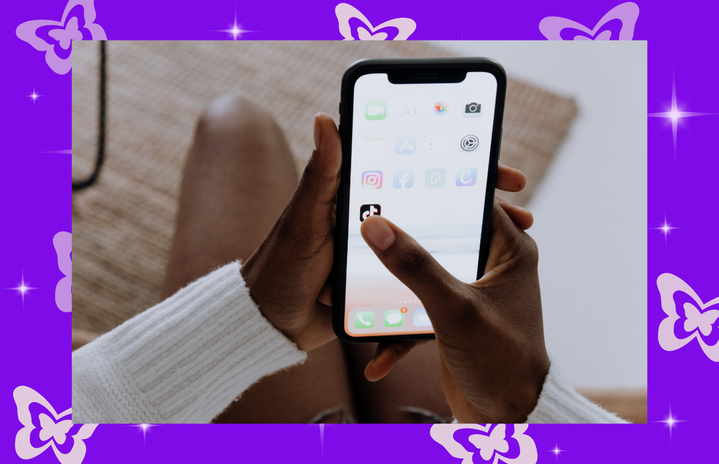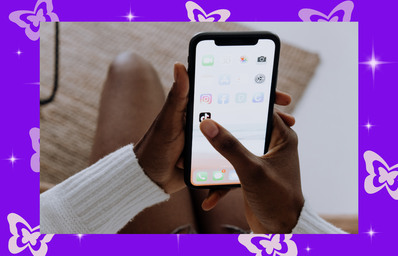On March 29, the State University System of Florida Board of Governors banned Tik Tok and other applications such as WeChat, Vkontakte, Kaspersky and Tencent QQ across all state universities due to claims surrounding potential cyberthreats. The policy has removed access to TikTok while on university WiFi.
According to a CNN interview with Congresswoman and GOP Chair Cathy McMorris Rodgers there is concern that users’ private data are available and accessible to the Chinese communist party. She also claimed that, despite the company’s denials, ByteDance (TikTok’s parent company) has previously leaked user’s private information to the Chinese government. TikTok claims they do not give such information to the Chinese government, but government officials such as Chair Rodgers believe it is still valid to ban TikTok because “TikTok cannot be trusted” as “they have repeatedly lied.” The interview referred to an incident in which two US-based and two Chinese-based TikTok employees were fired for improperly accessing American journalists’ personal information. They had been searching for people who may have been leaking information about TikTok employees to the press.
As a response to this being used as a reason to claim that the Chinese government is or can gain TikTok data, the interviewer Jake Tapper said, “but that is not the Chinese government . . . you’re talking about what could happen.” In addition, Mr. Chew, the CEO of TikTok, made a statement to address the issue saying, “The individuals involved misused their authority to obtain access to TikTok user data. This is unacceptable.” When asked if there is any concrete evidence of the Chinese government obtaining or seeking to obtain user information from TikTok, Chair Rodgers repeated that the evidence they have is that TikTok simply cannot be trusted.
Still, Mr. Chew and TikTok officials are fighting to be heard, shedding light on the fact that TikTok is a private company that is not owned by the Chinese government in any way. Furthermore, 3 out of 5 of ByteDance’s board members are American. Do accusations made about national security directed at TikTok include these American board members? Would this mean that said accusations are also directed toward American authorities? I do not think that this is the message Chair Rogers was trying to deliver, but I also do not believe that it is fair and consistent to speak of it as a foreign invasion of privacy if the majority of ByteDance’s board members are American.
Moreover, TikTok is not available in China, and the company’s headquarters are in the United States and Singapore, having about 7,000 US-based employees. Privacy restrictions have also been put in place in the past and are being refined. The end goal is to require data collected by TikTok from US-based users to be stored and available only in the US to protect it from foreign access. The company is actively hoping to finish deleting outdated US data and remaining data stored in Singapore by this year. Data from American users would be completely controlled and monitored by the United States government and security systems. Even after Mr. Chew’s hearing with the United States Congress, there is no concrete evidence that the Chinese government has ever gained access to user data from TikTok. TikTok Official, Michael Beckerman, expressed in an interview that he believes a ban on TikTok is a political move instead of a practical move that would genuinely protect people in the US. This is because, as he said in the interview, “these problems can be solved; we have a comprehensive solution that we’ve been working on for almost two years now.” Beckerman then goes on to explain that TikTok is working alongside the Biden administration to execute their project to move all US-based user data to the US TikTok base only. Again, this would remove US-based data from TikTok’s base in Singapore so that the US is the only country that can access that data.
. .The United States Congress has already received negative push back from young users. Students from the University of North Florida have expressed that they do not mind if their data is shared. One student stated, “I don’t really care who has my personal information – my data – as long as they don’t have my bank account. I think it’s shared everywhere already.” Other companies such as Instagram, Twitter, Facebook, and any other company that has any form of online platform and data storage system store data. It should not be surprising that TikTok does the same. Other students are enraged because TikTok is “the least of our worries.” Issues such as death rates from gun violence and the rapid decline in the health of our planet pose proven, concrete threats that we have already seen and have evidence of, but still little is being done to address them. A TikTok video was shown to Chair Rodgers during her interview of a young woman saying: “20,138 deaths from firearms in 2022 and the best that Congress can do to keep us safe is to ban TikTok. I’m so glad that we have elected officials to protect us and our children.” To this, Chair Rogers replied, “There is an immediate threat via TikTok from the Chinese communist party . . . there is a national security threat – their access, not just to our data, but the way that they have infiltrated.”
The lack of concrete evidence to support that the Chinese government has access to TikTok user data makes the decision to ban TikTok very unnecessary, at least in my opinion. Mr. Chew is already working toward giving the United States all of their users’ information and deleting it from their base in Singapore, so it seems to me like he genuinely does not want the data for anything other than creating the same algorithm that other social media platforms create for themselves. Congress said they do not want him accessing the data, so he is giving it back. The TikTok ban also feels to me like a distraction from more serious issues. It is very interesting for me that politicians find that banning firearms on any level is too complicated (often due to American cultural customs) but find the greatest ease banning a global social media platform widely used by Americans. It is heartbreaking to me to see this much energy being focused on unsupported, potentially-could-happen matters instead of on more urgent matters such as the thousands upon thousands of deaths nation-wide caused by gun violence.


